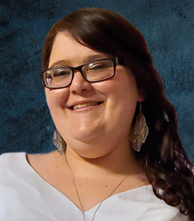Translating and localizing your eLearning content can feel daunting—with various slides, voiceover, graphics, and other content to translate, where should you begin? We recommend choosing a vendor who has extensive experience delivering high-quality eLearning modules on various platforms.
CyraCom can help. Our expert linguists and dedicated project managers know the right questions to ask to provide a helpful educational experience. Here’s a step-by-step guide to understanding CyraCom’s process for eLearning translation projects, including our best practices.
CyraCom’s eLearning translation process
Step 1: Submit a request for a quote
Just like any other translation project, you’ll need to submit a request for a quote via email (translation@cyracom.com) or through our secure translation portal. Please include your file(s), which language(s) you need, and the requested deadline for completing the project. If possible, include any other relevant details, such as the target audience for the translation and their education level.
Video: CyraCom’s Secure Translation Portal
Step 2: CyraCom analyzes your eLearning materials
We’ll assign a dedicated project manager (PM) to analyze your eLearning materials. They’ll review all content elements, including presentation slides and notes, graphics, charts, and imagery, as well as voiceover and captions. We also offer document translation if you have printed training materials such as manuals or workbooks.
Our team will need to know how you plan to distribute your eLearning materials. Our PMs have experience with a variety of eLearning platforms, including Storyline and Rise. We’ve even worked within clients’ proprietary platforms—however you plan to present your learning content, we can accommodate your needs.
If necessary, your PM will schedule a kickoff call to gather more information and help us complete your project quote.
Step 3: Receive a fast, simple quote
Once we understand your project better, we will finalize your quote and send it to you for approval.
For most translation projects, we provide estimates within one business day. If you have extensive learning modules or many media elements, it may take a bit longer for us to complete this process. However, CyraCom can typically accommodate rush or time-sensitive projects without issue.
Step 4: eLearning translation project begins
Your PM gets to work on your project, selecting expert linguists and proofreaders from CyraCom’s team, as well as selecting partners from a list of trusted vendors. For example, we often work with vendors who specialize in recruiting voiceover talent.
Like other translation projects, we utilize the talents of two linguists per language to deliver accurate, culturally appropriate, and localized translations. The first linguist translates your content, then the second linguist reviews and edits, all within our secure translation portal.
Step 5: Quality assurance
After editing, a proofreader reviews the project with intense attention to detail. Usually, the PM acts as the proofreader, fixing any inconsistencies, formatting, or simple mistakes such as misnumbered slides. They’ll also take a “bird’s eye view” of the entire project to ensure all elements have the same look and feel from one lesson to the next.
Step 6: Client feedback
Your PM will keep you updated throughout the project, answering any questions and keeping the team on track. After proofreading, we’ll share our work with you for review and implement any changes you’d like to see. This collaborative process helps ensure your voice is heard and your project looks as you envisioned.
Step 7: Project finalization
Once you’re happy with the translated eLearning materials, we will finalize your files and send you an invoice. We store your content within our Translation Memory database to help with future projects. For your next project, we can compare new content to previous projects, scanning for repeated text.
Translation Memory allows you to save on multiple projects over time—CyraCom doesn’t charge you to translate the same content twice.
Best Practices for eLearning translation
Each translation project has unique needs and challenges, especially for eLearning modules. Here are a few of the best practices CyraCom’s project managers use to provide a high-quality, localized finished product:
- Components: CyraCom’s PMs think critically about each element of your eLearning course so we can complete your translation project as quickly as possible. For example, components that utilize outside vendors are activated first to eliminate potential timing lags with communication and proofing. Voiceover scripts typically influence most module elements, so we prioritize perfecting the translated script and using the same key phrases throughout the content.
- Consistency: Whether you need to translate a single lesson or a series of modules, audiences notice irregularities in digital learning materials. For example, components that utilize outside vendors are activated first to eliminate potential timing lags with communication and proofing. For example, if the voiceover says, “The sky is blue,” we’ll verify that the on-screen text, imagery, or captions depict the same translated verbiage or idea.
- Customization: We don't treat eLearning projects with a "one-size-fits-all" mentality. We’ll match the translated eLearning modules to your unique source files, maintaining your brand voice. Every viewer should have the same learning experience, no matter the language. For example, we work with clients to select the best voiceover talent to fit the tone of their project, ensuring serious safety modules aren’t presented using a breezy, carefree tone of voice. Every element of your project is carefully tailored to your needs.
Ready to begin your eLearning translation project with CyraCom?
Contact our team at translation@cyracom.com to ask questions or submit a request for a free quote.










